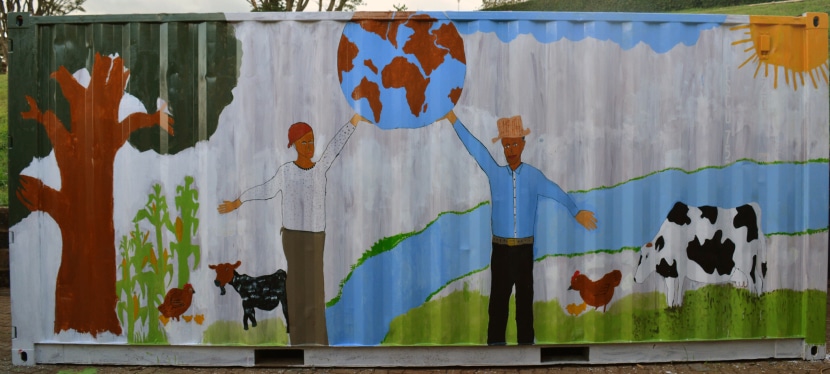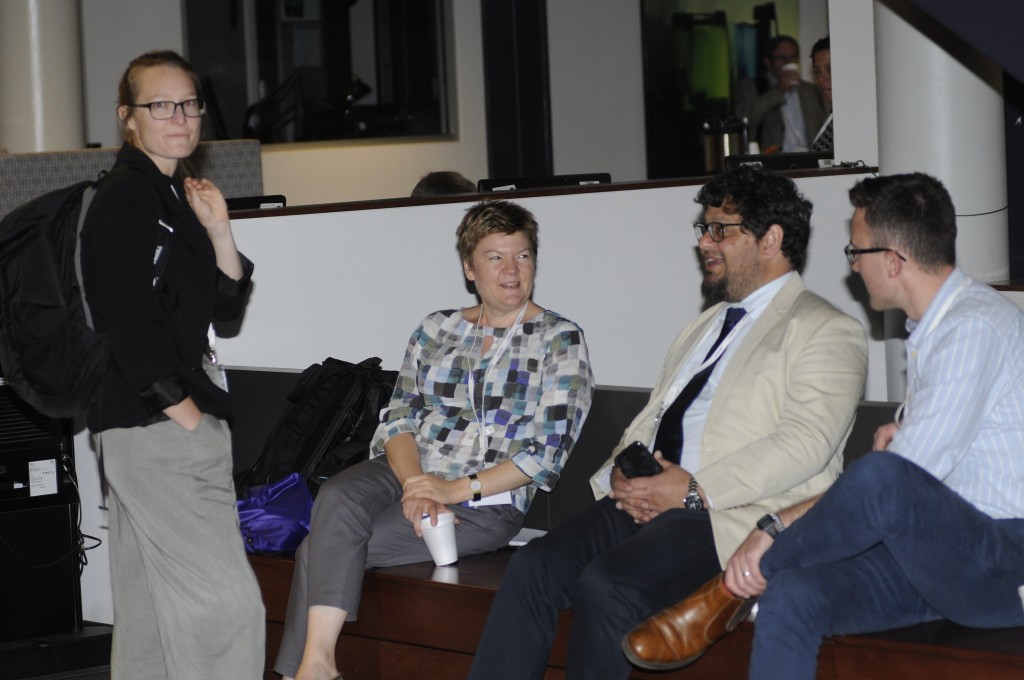Ruminating on a sustainable future for livestock
Report back from the 9th Global Agenda for Sustainable Livestock meeting
By Gareth Salmon, Supporting Evidence Based Interventions based at the Royal (Dick) School of Veterinary Studies, University of Edinburgh

Photo: ILRI/Susan MacMillan. Pictures of the environment, animals and people painted by Kenyan primary school children at the International Livestock Research Institute’s (ILRI) Mazingira Environment Centre.
The sustainability of livestock production is a hot topic of discussion and a real global challenge. Livestock sustains the livelihoods of hundreds of millions of smallholder
farmers as well as feeding people and economies in the global North. But livestock production also contributes to climate change, environmental degradation and other harmful impacts. In response, the Global Agenda for Sustainable Livestock (GASL) convenes public and private sector actors, intergovernmental organizations, academia, research, social movements, NGOs and donors to develop solutions. To date, 111 official partners including 20 governments have joined the agenda to share good practices and policies, and champion the principle that all livestock production systems can be more sustainable, no matter where they are.
On behalf of the Livestock Data for Decisions (LD4D) Community of Practice, Karen Smyth and I attended the 9th partnership meeting, hosted by Kansas State University (USA).
We shared some of the collaborative work done by the community, including the soon to be launched livestockdata.org. The efforts of our Community of Practice were well received and valued by stakeholders.
For many, ‘livestock sustainability’ is associated with well-recognised negative environmental impacts of livestock production and the associated need to improve production efficiency. But the livestock sector is linked to at least nine of the seventeen Sustainable Development Goals. Accordingly, GASL frames its discussions around four broad domains of sustainability: food and nutrition security, livelihoods and economic growth, animal health and animal welfare, and climate and natural resource use.

Photo: Kansas State Research and Extension. Meeting participants ruminate on a sustainable future for livestock.
These four domains recognise the complexity of livestock production systems, and this was a common theme throughout the meeting. First of all, one-size never fits all for livestock production; every system has a unique context that must be recognised in assessments and planning. To fully understand production system variation, appropriate and effective data and evidence is essential. Yet, it was also stated that using data and evidence to make generalisations can be unhelpful; nuance must be retained. These messages were encouraging as they aligned closely with the messages that came from LD4D’s Livestock Fact Check project.
Whichever livestock system you consider, from pastoral tribes in Africa to hill farmers in the UK, the deep cultural links associated with livestock production are apparent. I was very pleased to see recognition among the different stakeholders of these cultural aspects, which can make change difficult. Respecting the ingrained nature of livestock production in communities and livelihoods is fundamental to livestock sustainability.

Photo: Kansas State Research and Extension. LD4D community members connected at the conference.
Livestock production cannot carry on with the status quo and overall, there are clear signs that the global livestock community is motivated to improve practices, communication and engagement. We need to start making changes now. Numerous presenters used the useful analogy of livestock sustainability as a journey not a destination. I was encouraged by presentations from producers and policy makers which demonstrated examples of sustainability. These ambitions rely on good data and evidence, knowledge being power for every stakeholder.
The meeting offered useful insight into the global context of livestock sustainability, and I came away from highly encouraged that the activities of SEBI and LD4D, to improve the consumption of livestock data, have a significant role to play as data stakeholders.
Gareth Salmon is a researcher with Supporting Evidence Based Interventions (SEBI) based at the Royal (Dick) School of Veterinary Studies, University of Edinburgh. SEBI facilitates the Livestock Data for Decisions (LD4D) Community of Practice.
October 23, 2019
Vanessa Sebi




